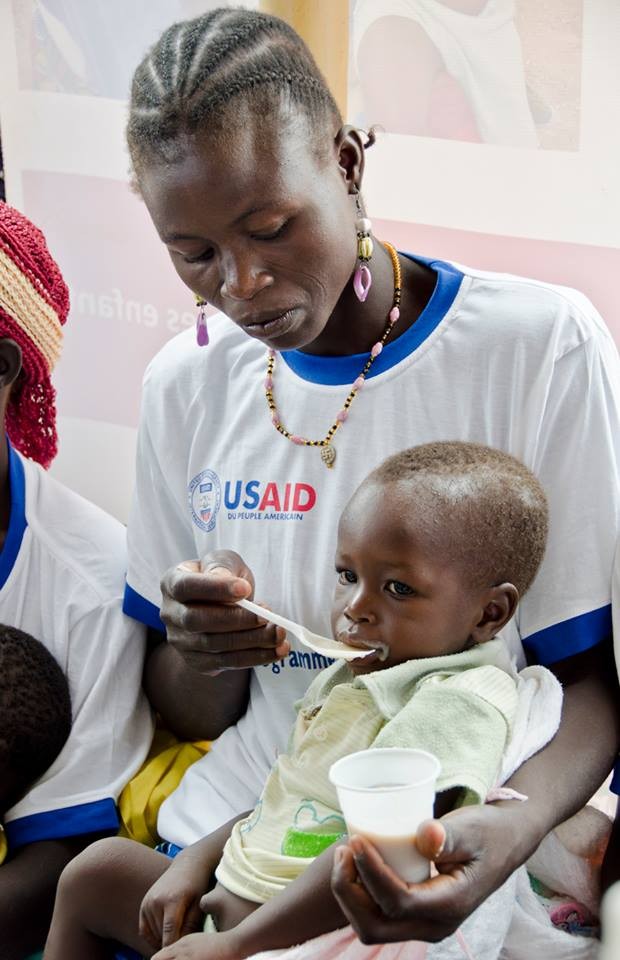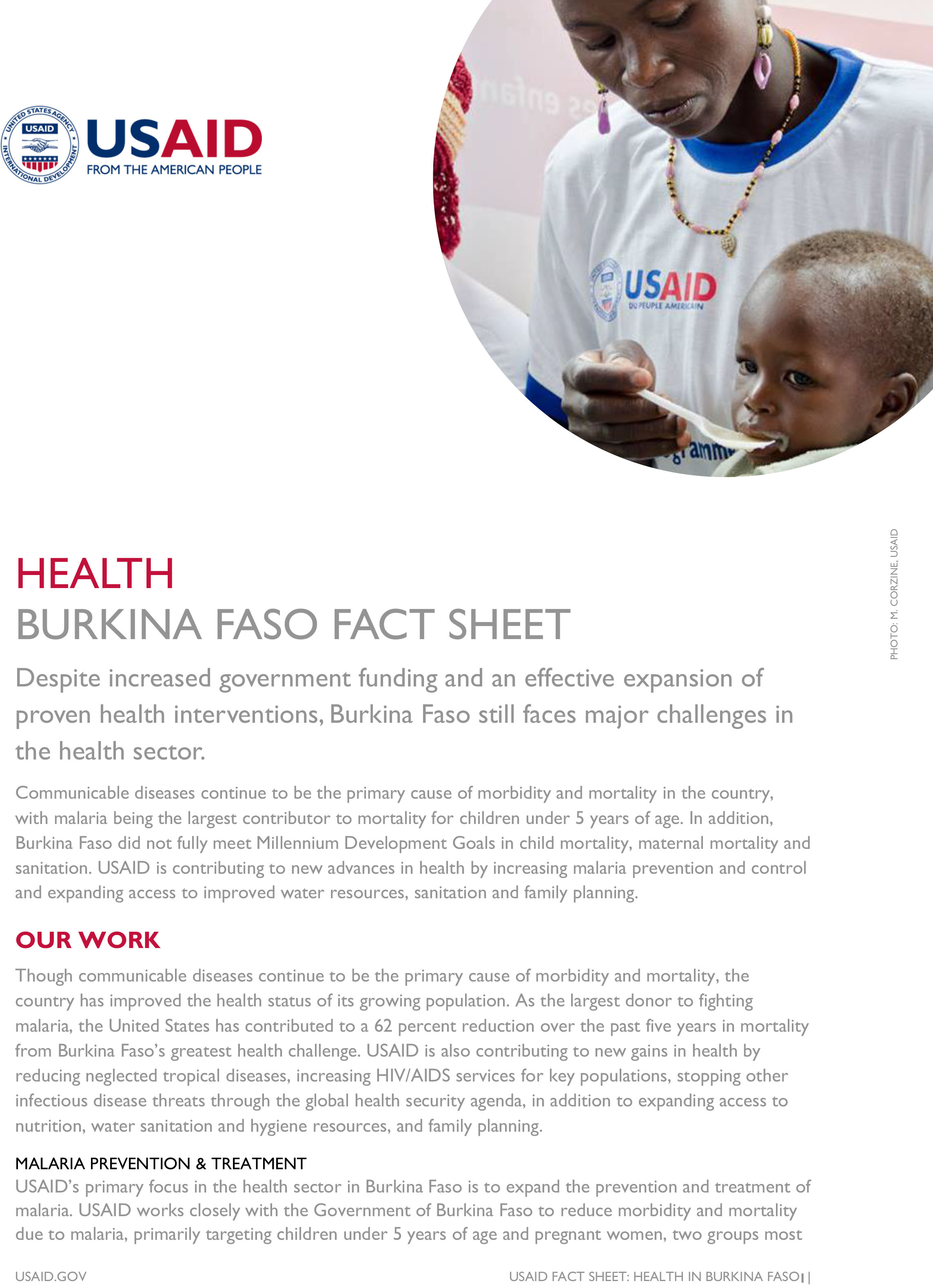
Despite increased government funding and an effective expansion of proven health interventions, Burkina Faso still faces major challenges in the health sector.
Communicable diseases continue to be the primary cause of morbidity and mortality in the country, with malaria being the largest contributor to mortality for children under 5 years of age. In addition, Burkina Faso did not fully meet Millennium Development Goals in child mortality, maternal mortality and sanitation. USAID is contributing to new advances in health by increasing malaria prevention and control and expanding access to improved water resources, sanitation and family planning.
PROGRAMS
Though communicable diseases continue to be the primary cause of morbidity and mortality, the country has improved the health status of its growing population. As the largest donor to fighting malaria, the United States has contributed to a 62 percent reduction over the past five years in mortality from Burkina Faso’s greatest health challenge. USAID is also contributing to new gains in health by reducing neglected tropical diseases, increasing HIV/AIDS services for key populations, stopping other infectious disease threats through the global health security agenda, in addition to expanding access to nutrition, water sanitation and hygiene resources, and family planning.
Burkina Faso Fact Sheet-Health ![]() (pdf - 148k)
(pdf - 148k)
Malaria Prevention & Treatmen
USAID’s primary focus in the health sector in Burkina Faso is to expand the prevention and treatment of malaria. USAID works closely with the Government of Burkina Faso to reduce morbidity and mortality due to malaria, primarily targeting children under 5 years of age and pregnant women, two groups most vulnerable to the disease. USAID supports Burkina Faso’s National Malaria Control Program to scale up proven malaria prevention and control practices in order to reduce the burden of the disease.
Enhancing Resilience & Nutrition
USAID’s works to improve the health and nutrition status of women and children under 5 years old, in order to reduce chronic vulnerability of populations to recurrent crises. USAID’s resilience project encompasses a broad range of humanitarian and development programs, including long-term development projects implemented by USAID’s Office of Food for Peace that are focused on food security and nutrition. The multi-sector approach includes nutrition-sensitive programs that increase the availability of and access to nutritious food and potable water. USAID works to transform the behaviors of vulnerable populations related to water and sanitation, nutrition and health-care seeking practices. USAID also builds the capacity of local health systems to manage acute malnutrition and to prevent and treat childhood illnesses related to malnutrition.
Family Planning
USAID programs are increasing demand for and access to quality family planning services in select areas of Burkina Faso by strengthening the capacity of health centers and family planning service providers, and working to create a supportive environment for reproductive health in the community. Through its resilience programs, USAID promotes Safe Space clubs, where young women can learn about nutrition and sexual and reproductive health with and from their peers.
Global Health Security Agenda
Burkina Faso is a phase-one priority country for the US Government’s Global Health Security Agenda (GHSA), which seeks to accelerate progress toward a world safe and secure from infectious disease threats and to promote global health security as an international security priority. USAID works with the Centers for Disease Control and Prevention to support national efforts to prevent and reduce the likelihood of health outbreaks by providing early detection of potential global health threats and rapid, effective response to these threats. In close coordination with other actors, USAID supported the Government of Burkina Faso in developing the GHSA roadmap which will guide the implementation of activities targeting prevention, detection and response to emerging pandemic threats.
Neglected Tropical Diseases
USAID implements mass drug administration to treat preventable diseases (lymphatic filariasis, onchocerciasis, trachoma, schistosomiasis and soil-transmitted helminths) in the country. USAID also provides high quality care and services to prevent or relieve complications from lymphatic filariasis and blindness trachoma.
HIV/AIDS
USAID supports efforts to prevent HIV/AIDS among key populations in Burkina Faso. The project has four components: services, capacity building and advocacy, technical assistance to the Global Fund's principal recipients and sub-recipients implementing HIV services, and communication for sharing best practices.
USAID Burkina Faso Health Goals
- Increased malaria prevention and control interventions
- Improved nutrition and water and sanitation practices
- Improved environment for reproductive health in the community
- Improved prevention, detection and response to infectious disease outbreaks and newly emerging health threats









Comment
Make a general inquiry or suggest an improvement.